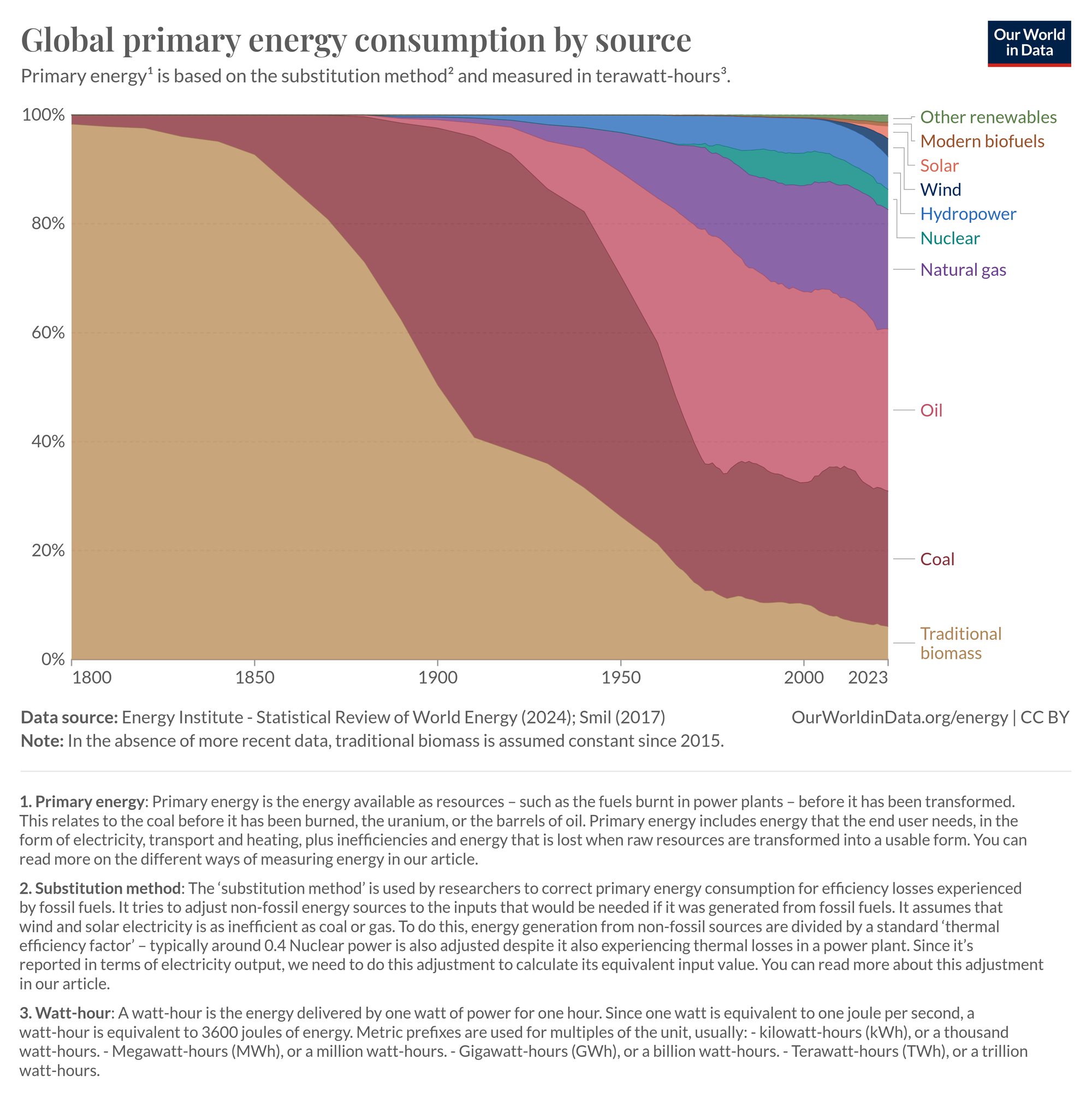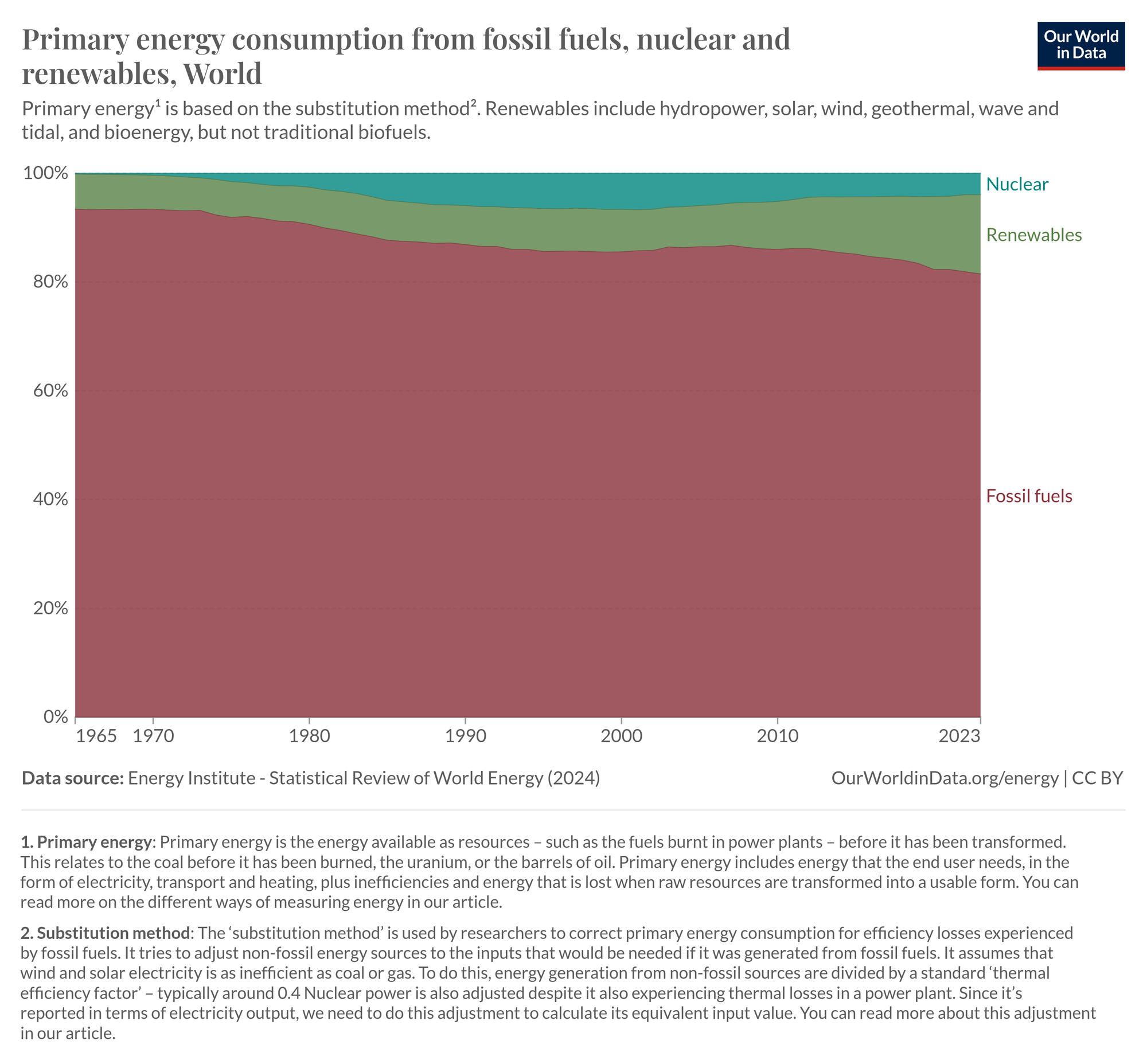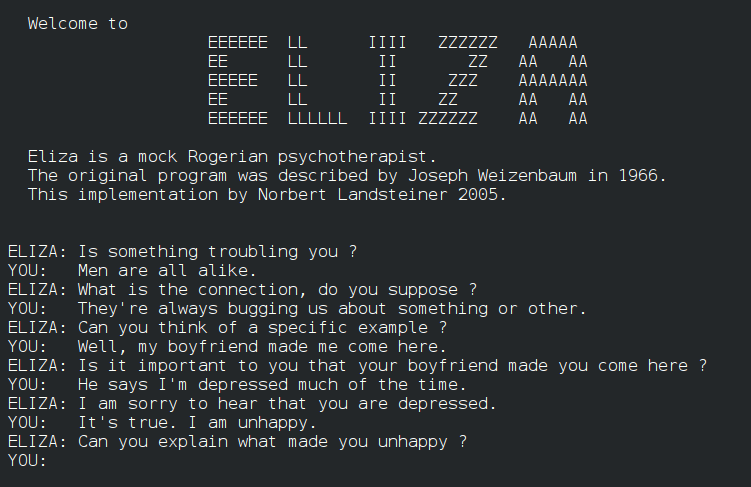Energy transitions take time

Have you ever looked at visualizations of the data on global primary energy consumption? It reveals a lot and makes me realize just how great of a challenge the energy transition is. Also how futile the attempts are at changing energy source without drastically decreasing our energy use. If we want to stop climate change, that is. Energy transitions take a long time.

See that little blob in the top right corner? That's renewables. They're increasing. But consider the proportions. And consider how long it has taken for different fossil fuels to replace it each other. We hear good news about how renewables are scaling up. Those news almost always put the numbers in terms of how much of electricity production is made up by renewables. On some days, all of Denmark's electricity is by wind. Great. Problem is electricity is only a small part of primary energy.
If you collapse all those fossil fuels in the diagram to one source, the proportions are even stronger. Renewables here include hydropower, solar, wind, geothermal, wave and tidal and bioenergy. Most of those renewables still consist of hydropower - an energy source that is highly problematic in biodiversity terms. Consider how slow the transition is: In 1990, fossil fuels took up 87% of the mix. In 2023, it was 81%. So in 33 years it dropped 6%.

Remember that the Paris agreement defined 2050 as the year for the world to reach net zero emissions, right? That's in 27 years. At the rate the world is leaving fossil fuels right now we would get rid of another 5%. That means fossil fuels would still take up 75% in 2050. Even if something magical happened and the transition went much faster, say twice or triple the speed of transition, we would still be far, far away. The problem is energy infrastructure and production takes a lot of time.
Because energy transition takes such a long time, it's a very strong argument for drastically decreasing energy consumption. You simply turn the knob on the other side of the equation. Energy innovation is overrated. Using less energy is a tried and tested solution. The fast is most of the world's population already live within the planetary boundaries. If the overdeveloped world cut down to say 2 kW primary energy use per day we would still live like an average citizen of Brazil.
Hear out Vaclav Smil back in 2015 talking about these things:



